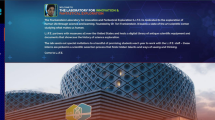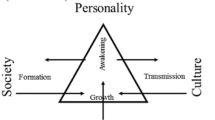Abstract
This article is based on results from a research project which focused on chemistry teachers and student narratives from lived experience. The purpose was to find a way to make abstract chemistry more meaningful. The project began with six experienced teachers who used narratives and stories as a didactic tool. These narratives stemmed from the teachers individual lived experience and thus were designed differently. Later, interviews with students showed that five adult students and six younger students all appreciated the use of narratives as ameaning-making activity to help them grasp the abstract subject. The most interesting finding was that the students revealed several narratives from their own lives where the theories of chemistry played an important role in explaining events that otherwise had been mysterious to them. Thus the teachers and students showed that the ancient human method of sharing experience through narrative is still alive and useful in chemistry education.
Similar content being viewed by others
References
Barr I.M., McGuire M.E. (1993) Social studies and effective stories. Social Studies and the Young Learner 5(3): 6–8
Bennett J., Gräsel C., Parchmann I., Waddington D. (2005) Contextbased and conventional approaches to teaching chemistry: Comparing teachers’ views. International Journal of Science Education 27: 1521–1547
Bennett J., Holman J. (2003) Context–based approaches to the teaching of chemistry: What are they and what are their effects? In: Gilbert J.K., De Jong O., Justi R., Treagust D., Van Driel J.H. (eds) Chemical education: Towards research–based practice. Kluwer Academic Publishers, Dordrecht, NL, pp 165–184
Bruner J. (1960) The process of education. Vintage, New York, NY
Bruner J. (2002) Making stories: Law, literature, life. Farrar, New York, NY
Campbell B., Lazonby J., Millar R.H., Nicolson P.E., Ramsden J.M., Waddington D.J. (1994) Science, the Salter’s approach – A case study of the process of large scale curriculum development. Science Education 78: 415–447
Cromer A. (1993) The heretical nature of science. Oxford University Press, Oxford, UK
DeBoer G.E. (1991) A history of ideas in science education. Implications for practice. Teachers College Press, New York, NY
Duschl R.A. (1988) Abandoning the scientific legacy of science education. Science Education 72: 51–62
Emsley J. (1998) Molecules at an exhibition. Portraits of intriguing materials in everyday life. Oxford University Press, Oxford, UK
Erduran S., Scerri E. (2003) The nature of chemical knowledge and chemical education. In: Gilbert J.K., de Jong O., Justi R., Treagust D., Van Driel J.H. (eds) Chemical education: Towards research–based practice. Kluwer Academic Publishers, Dordrecht, NL, pp 7–27
Falkenberg C., Håkonsson E. (2000) Storylinebogen, En håndbog for undervisere. Kolding, Kroghs forlagA/S.
Fensham P. (2000) Providing suitable content in the ‘science for all’ curriculum. In: Millar R., Leach J., Osborne J. (eds) Improving science education. The contribution of research. Open Press University, Buckingham, UK, pp 147–164
Gilbert J.K., De Jong O., Justi R., Treagust D.F., Van Driel J.H. (2003) General Preface. In: Gilbert J.K., de Jong O., Justi E., Treagust D., Van Driel J.H. (eds) Chemical education: Towards research–based practice. Kluwer Academic Publishers, Dordrecht, NL
Goodson I.F. (1992) Studying teachers’ lives: An emergent field of inquiry. In: Goodson I. (eds) Studying teachers’ lives. Routledge, London, UK, pp 1–17
Goodson I., Sikes P. (2001) Life history research in educational settings: Learning from lives. Open University Press, Buckingham, UK
Gubrium J.F., Holstein J.A. (2003) From the individual interview to the interview society. In: Gubrium J.F., Holstein J.A. (eds) Postmodern interviewing. SAGE Publications, London, UK, pp 21–49
Kvale S. (1996) Interviews. An introduction to qualitative research interviewing. SAGE Publications, London, UK
Linné A. (2001) The lesson as a pedagogic text: A case study of lesson designs. Journal of Curriculum Studies 33(2): 129–156
Lindberg, V. (2003). Yrkesutbildning i omvandling. En studie av lärandepraktiker och kunskapstraditioner. Dissertation. Stockholm: HLS Förlag.
Löfdahl, S.E. (1987). Fysikämnet i svensk realskola och grundskola. Kartläggning och alternativ ur fysikdidaktisk synvinkel. Uppsala: Uppsala studies in education 28, Acta Universitatis Upsaliensis.
Mishler E.G. (1986) Research interviewing: Context and narrative. Harvard University Press, Cambridge, MA
Ogborn J., Kress G., Martine I., McGillykuddy K. (1996) Explaining science in the classroom. Open University Press, Bristol, UK
Östman L. (1995) Socialisation och mening: NO-utbildning som politiskt och miljömoraliskt problem. Almqvist & Wiksell, Stockholm
Östman L. (1998) How companion meanings are expressed by science education discourse. In: Roberts D.A., Östman L. (eds) Problems of meaning in science curriculum. Teachers College Press, New York, NY, pp 54–70
Persson, H. (2002). Electrical storms. Article for a program at the Scottish opera.
Polkinghorne D.E. (1995) Narrative configuration in qualitative analysis. In: Hatch J.A., Wisniewski R. (eds) Life history and narrative. The Falmer Press, London, pp 5–24
Ramsden J.M. (1992) If it’s enjoyable, is it science? School Science Review 73(265): 65–71
Ramsden J.M. (1997) How does a context-based approach influence understanding of key chemical ideas at 16+? International Journal of Science Education 19(6): 697–710
Renström L. (1988) Conceptions of matter: A phenomenographic approach. Acta Universitatis Gothoburgensis, Göteborg
Schreiner, C. (2006). Exploring a ROSE-garden: Norwegian youth’s orientations towards science – Seen as signs of late modern identities. Doctoral thesis, University of Oslo, Faculty of Education, Department of Teacher Education and School Development, Oslo.
Schreiner, C. & Sjøberg, S. (2004). Sowing the seeds of ROSE. Background, rationale, questionnaire d’evelopment and data collection for ROSE (The Relevance of Science Education) – A comparative study of students’ views of science and science education. (Acta Didactica 4/2004) Oslo: Dept. of Teacher Education and School Development, University of Oslo.
Schwarcz J. (1999) Radar, hula hoops and playful pigs. 67 digestible commentaries on the fascinating chemistry of everyday life. McGill, Montreal, QC
Selander S. (2001). En kritisk ämnesdidaktik. In Utmaningar för en kritisk ämnesdidaktik. Rapport från symposium 29 april 1999. Stockholm: HLS Förlag.
Selinger B. (2000) Why the watermelon won’t ripen in your armpit and other science conundrums. St. Leonards, NSW, Allen & Unwin
Shulman L.S. (1992) Toward a pedagogy of cases. In: Shulman J.(eds) Case methods in teacher education. Teachers’ College Press, New York, NY, pp 1–30
Sjøberg S. (2000) Naturvetenskap som allmänbildning – en kritisk ämnesdidaktik. Studentlitteratur, Lund
Sjøberg, S. & Schreiner, C. (2006). How do learners in different cultures relate to science and technology? Results and perspectives from the project ROSE (the Relevance of Science Education. APFSLT: Asia- Pacific Forum on Science Learning and Teaching, 7(1), Foreword
Skelton J.R., Hammond P. (1998) Medical narratives and the teaching of communication in context. Medical Teacher 20(6): 548–551
Solomon J. (1993) Four frames for a field in black. In: Lucas P.J., Lucas A.M. (eds) Children’s informal ideas in science. Routledge, London, UK
Stinner A. (1980) Physics and the bionic man. The Physics Teacher 18: 352–362
Stinner A. (1993) Conceptual change, history and science stories. Interchange 24(1–2): 87–103
Stinner A. (1995) Contextual settings, science stories, and large context problems: Toward a more humanistic science education. Science Education 79(5): 555–581
Stinner A., Winchester I. (1981) The physics of Star Trek. New Scientist 92: 884–888
Stocklmeyer S., Gilbert J.K. (2003) Informal chemical education. In: Gilbert J.K., De Jong O., Justi R., Treagust D., Van Driel J.H. (eds) Chemical education: Towards research-based practice. Kluwer Academic Publishers, Dordrecht, NL, pp 143–164
Strömdahl H. (1996) On mole and amount of substance a study of the dynamics of concept formation and concept attainment. Acta Universitatis Gothoburgensis, Göteborg
Tullberg A. (1998) Teaching “the mole:” A phenomenographic inquiry into the didactics of chemistry. Acta Universitatis Gothoburgensis, Göteborg
Turner M. (1996) The literary mind: The origins of thought and language. Oxford University Press, Oxford, UK
Van Driel J.H. (2003) The curriculum for chemical education. Section B Preface. In: Gilbert J.K., de Jong O., Justi R., Treagust D., Van Driel J.H. (eds) Chemical education: Towards research-based practice. Kluwer Academic Publishers, Dordrecht, NL, pp 97–100
Wandersee J.H., Griffard P.D. (2003) The history of chemistry: Potential and actual contributions to chemical education. In: Gilbert J.K., de Jong O., Justi R., Treagust D., Van Driel J.H. (eds) Chemical education: Towards research-based practice. Kluwer Academic Publishers, Dordrecht, NL, pp 29–46
Wolpert L. (1992) The unnatural nature of science. Faber and Faber, London,UK
Author information
Authors and Affiliations
Corresponding author
Rights and permissions
About this article
Cite this article
Boström, A. Narratives as Tools in Designing the School Chemistry Curriculum. Interchange 39, 391–413 (2008). https://doi.org/10.1007/s10780-008-9072-1
Accepted:
Published:
Issue Date:
DOI: https://doi.org/10.1007/s10780-008-9072-1




